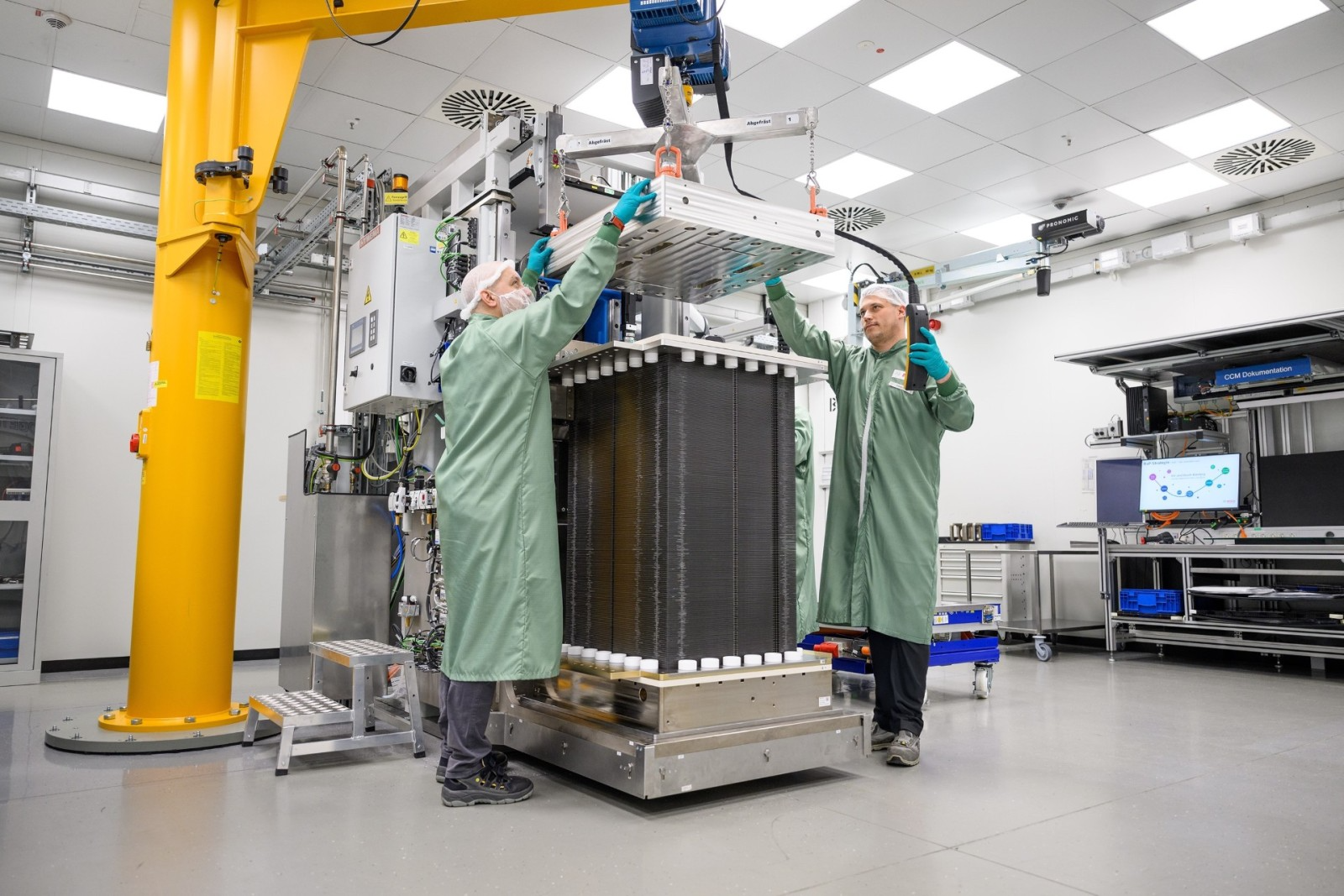Bosch has officially entered the green hydrogen production market, unveiling its Hybrion proton exchange membrane (PEM) electrolyzer stack technology at Hannover Messe. Designed to scale industrial hydrogen production and reduce costs, Bosch’s debut is marked by a major pre-launch milestone: orders totaling around 100 megawatts from global partners, even before official commercial rollout.
One highlight at the trade fair was the FEST 2.5 MW electrolyzer system, which features two Bosch Hybrion PEM stacks housed in a modular container format. Each Hybrion stack delivers 1.25 MW of power, producing up to 23 kilograms of green hydrogen per hour—enough to fuel a 40-ton truck for up to 300 kilometers.
“To counter climate change, we need alternatives to fossil fuels. Green hydrogen produced from renewables is vital to decarbonizing heavy industry and transportation,” said Dr. Stefan Hartung, Chairman of the Board of Management at Robert Bosch GmbH. “The Hybrion stack is at the core of that solution.”
Pioneering Production in Bamberg
Initial production of the Hybrion stacks is underway at Bosch’s Bamberg facility, where advanced assembly tools streamline stack manufacturing by layering over 100 electrolysis cells per unit. A PEM membrane inside each cell separates hydrogen and oxygen molecules through a renewable-powered electrochemical reaction.
In 2025, Bosch plans to integrate its electrolyzer system at the Bamberg plant into a full hydrogen cycle: the hydrogen produced will be used to test mobile fuel-cell stacks on-site, and the energy from testing will help power the electrolyzer—forming a closed-loop system.
Pre-Launch Momentum and Strategic Collaborations
Even ahead of its formal sales start in April, Bosch’s technology has gained traction across the hydrogen ecosystem. Customers such as Neuman & Esser will incorporate 16 Hybrion stacks into a 20 MW electrolyzer, and Bosch is collaborating with industry leaders including Andritz, Pietro Fiorentini, iGas, Hyter, IMI, Técnicas Reunidas, and others.
“Hydrogen is a strategic growth area for Bosch. We anticipate billions in revenue by 2030,” said Dr. Markus Heyn, Chairman of Bosch Mobility.
Broad Hydrogen Ecosystem Support
Bosch’s extensive hydrogen portfolio also includes ultrapure water treatment systems for electrolysis, mobile fuel cell systems, and hydrogen combustion engines. The company is also advancing CryoPump refueling stations through a partnership with FirstElement Fuel in the U.S., cutting truck refueling times to 10 minutes and reducing operational costs by up to 70%.
“We bring our proven industrial expertise to the hydrogen economy,” said Dr. Tanja Rückert, Member of the Bosch Board of Management. “From water purification to gigawatt-scale stacks, Bosch offers solutions from industry for industry.”
With its Hybrion platform and strong early momentum, Bosch is poised to play a central role in accelerating the hydrogen economy and helping decarbonize hard-to-abate sectors across the globe.


